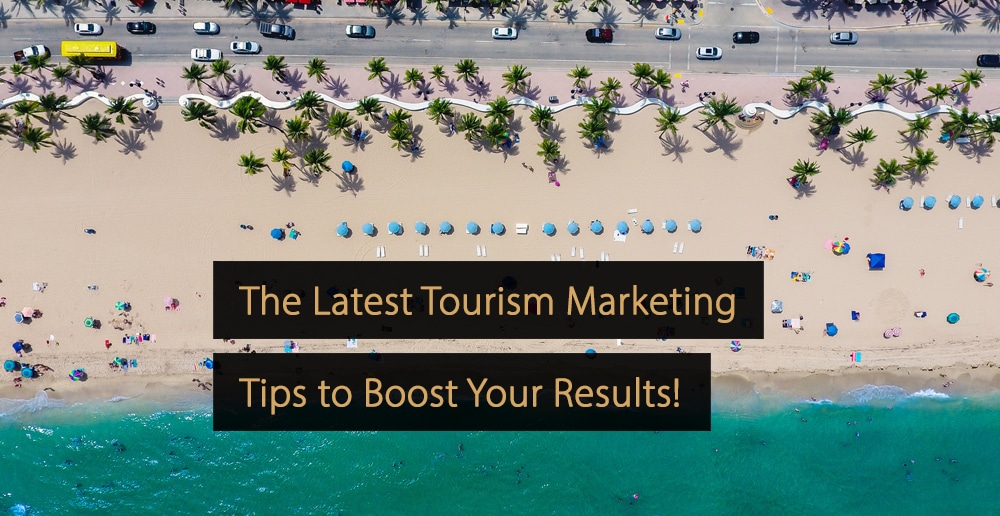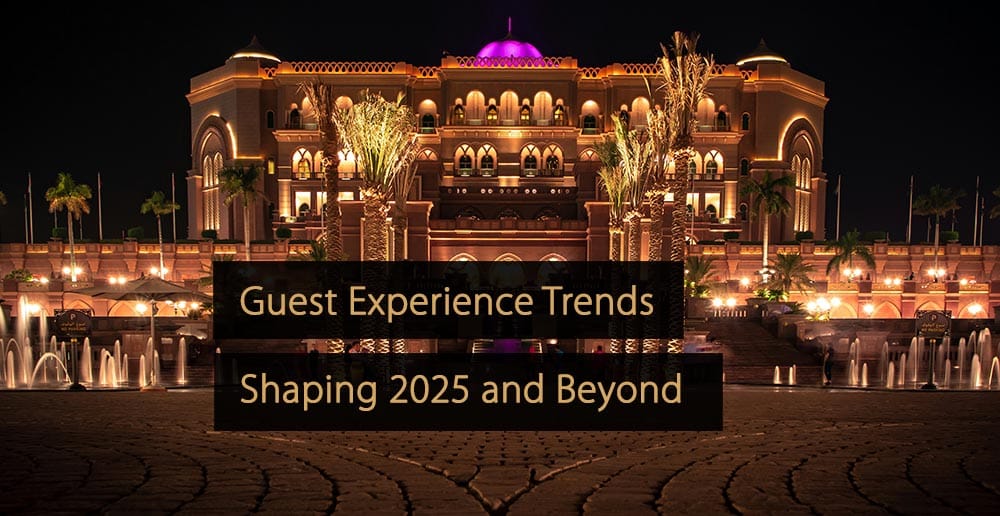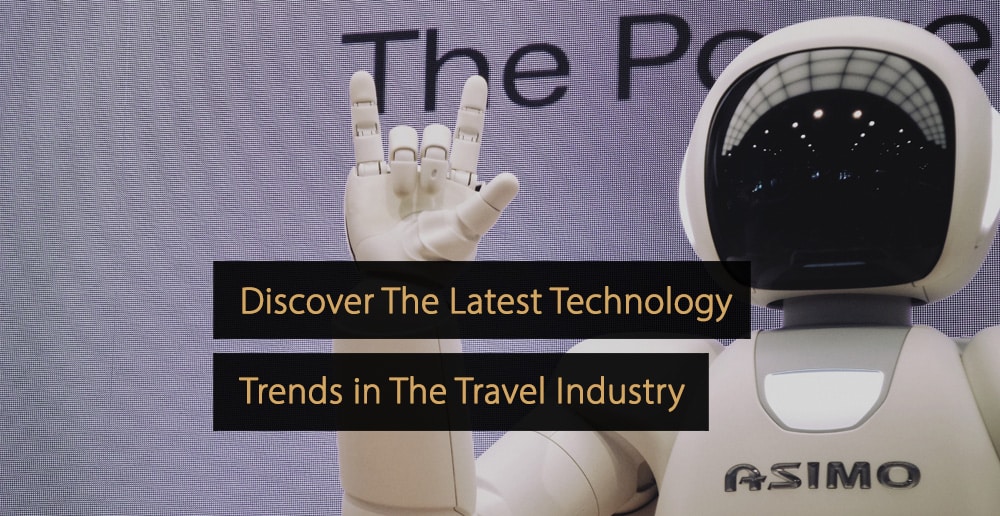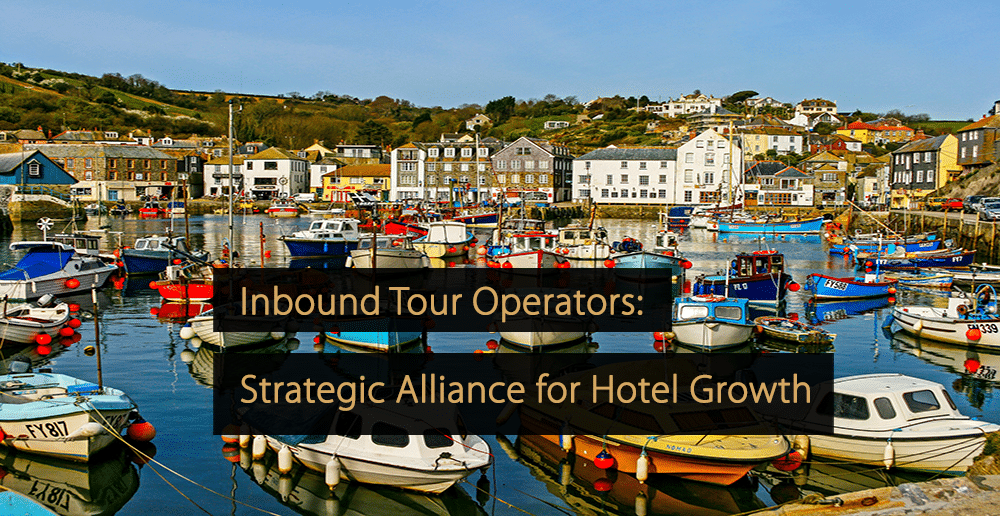Adopting the right tourism marketing strategies can be vital to maximizing revenue, building brand awareness, and managing your company’s reputation. In this article, you will find the latest tourism marketing tips for 2025, which you can use to optimize results and achieve your business objectives.
Table of Contents:
- What is Tourism Marketing?
- Why is Tourism Marketing Important?
- 18 Tourism Marketing Strategies to Boost Your Results
- 1. Prioritize Hygiene and Safety Via Marketing Communication
- 2. Embrace Eco-Tourism and Sustainable Tourism Marketing
- 3. Create Tourism Marketing Based on Health and Wellness
- 4. Capitalize on Voice Search
- 5. Deploy Artificial Intelligence
- 6. Enhance the Guest Experience & Satisfaction Through Chatbots
- 7. Utilize Augmented Reality Technology
- 8. Prioritize Personalization
- 9. Virtual Reality (VR) Tours
- 10. Focus on the Customer Experience
- 11. Create a Content Marketing Strategy
- 12. Optimize the Local Visibility of Tourism Marketing Efforts
- 13. Embrace Influencer Marketing
- 14. Facilitate User-Generated Content
- 15. Do Not Neglect Review Marketing
- 16. Invest in Remarketing Efforts
- 17. Metaverse in Tourism Marketing
- 18. NFTs as a Way to Boost Tourism Marketing
- Travel Agencies Provide an Opportunity to Increase Bookings
What Is Tourism Marketing?
According to the Travel & Tourism – Worldwide Report by Statista, the Travel & Tourism market is projected to grow at an annual rate of 3.47% until 2028. Tourism marketing plays an important role in growing the industry and is the collective name given to the various marketing strategies businesses use within the tourism industry. This includes, for example, hotels and other forms of accommodation, along with airlines, car rental services, restaurants, entertainment venues, travel agents, and tour operators.
Tourism marketing aims to promote the business, make it stand out from rivals, attract customers, and generate brand awareness. Many modern tourism marketing strategies use the internet, with websites, online adverts, email, and social media platforms often playing a key role.
Why Is Tourism Marketing Important?
Tourism is one of the world’s largest industries, and it is extremely competitive. This means that businesses operating within the industry must find ways to stand out from rivals, promote themselves as the best option for tourists, and highlight some things that make them different or superior. Marketing is essential for achieving this, and many of the best tourism marketing tips focus on helping businesses find a unique selling point and promote it. Of course, it is also crucial that marketers keep up with the latest trends to create a diverse marketing mix and use the best methods for getting their message out.
Table: Importance of Tourism Marketing
18 Tourism Marketing Strategies to Boost Your Result
Keeping up with the new developments in tourism marketing is crucial, but it is also essential to consider the meaning of these developments. Below, you will find a rundown of patterns that are important to the tourism industry as a whole, as well as developments that have arisen after the coronavirus pandemic.
1. Prioritize Hygiene and Safety Via Marketing Communication
Customer safety has always been a major concern for the tourism industry, but customer needs in this area have evolved after COVID. In particular, there is a greater emphasis on hygiene than ever before, which needs to be reflected in your tourism marketing efforts.
This means highlighting your steps to keep your property or business up to hygiene standards. Customers need to be convinced that they will be safe, so you need to emphasize these concepts of hygiene and safety on your website, marketing content, third-party platforms, and customer communication.
Read our article, “Tips to Highlight Safety in Marketing & Guest Communication in Travel”, for much more on this topic.
2. Embrace Eco-Tourism and Sustainable Tourism Marketing
Sustainability measures can be promoted in your tourism marketing to highlight the steps you are taking to protect the environment. Eco-tourism is a growing trend, based on travel to natural areas and efforts to minimize harm.
The importance of sustainability in tourism is increasing all the time, as travelers become more aware of the potential damage tourism can do. By promoting sustainability features, you can appeal to eco-conscious tourists.
Throughout your tourism marketing strategy, you may be able to highlight interesting natural attractions nearby, efforts you are taking to cut your carbon footprint, or ways you are reducing resource consumption. You may also be able to get involved in nearby conservation efforts and carbon offsetting schemes.
Read our article, “Ecotourism: What it is, Advantages & Disadvantages, Examples & More“, for much more on this topic.
3. Create Tourism Marketing Based on Health and Wellness
Health and wellness tourism is growing all the time and your tourism marketing efforts should reflect this. Target the right audience with content explaining how your business can contribute to travelers’ well-being.
The wellness tourism market is a key area to focus on, as it allows you to reach a growing customer base. Tourism businesses have the potential to help people relax, unwind, and break bad habits. Examples of wellness offerings you could promote in your tourism marketing content include healthy eating options, vegetarian and vegan menus, fitness facilities, or spas and relaxation offerings. Silent retreats and meditation classes are among the other relevant trends you may be able to capitalize on.
Video: What Is Wellness Tourism? | Health Tourism, Medical Tourism, Sustainable Tourism And More
4. Capitalize on Voice Search
The rise of voice recognition technology has opened up new avenues for marketers to explore. According to the Industry Specific Voice Search Statistics by synup, in 2023, 27% of searches on Google App were done by voice. In particular, hotels are increasingly using smart hubs to offer voice search capabilities within rooms, providing a more convenient source of tourist information. Meanwhile, travel agents are also making it easier to book entirely through voice control. One of the best tourism marketing tips is using SEO principles to focus on voice search results on platforms like Google. Additionally, voice search can be used to put customers in contact with a chatbot.
Video: Book a Flight, Hotel, or Car Rental via Expedia through Amazon Alexa
In the article “How Can Voice Search Benefit the Travel Industry?” you will learn more about voice control and how it can help the travel industry.
5. Deploy Artificial Intelligence
The use of artificial intelligence is another growing marketing trend. For example, travel websites can look at past bookings to make intelligent recommendations for future bookings, hotels can use artificial intelligence to create a more personalized offering for their guests, and AI can assist with analyzing data for marketing purposes. Of course, one of the other major areas where AI is used is through chatbots. The benefit is that fast response times to customer queries can be guaranteed 24 hours a day, seven days a week, regardless of staff availability.
Video: How AI Will Disrupt the Tourism Industry
In the article “How Artificial Intelligence is Changing the Travel Industry,” you will learn the uses and benefits of artificial intelligence and explain how it is changing how tourism companies operate.
6. Enhance the Guest Experience & Satisfaction Through Chatbots
Chatbots are increasingly used for customer service because they can quickly respond to customers, even when staff members are unavailable. One of the best things about chatbots is their ability to gather the information that a human customer service rep can use if intervention is required.
This technology also allows for communication in multiple languages. The chatbot can be set up to attempt cross-selling and up-selling, which can potentially help you boost revenue. Moreover, chatbots can also be used to gather feedback during the customer journey’s follow-up stage.
Example 1: Chatbot Within Tourism
Example 2: ChatBot for Customer Service
Read more about chatbots in our articles “AI Chatbot: What Are the Advantages for the Travel Industry?” and “AI Bot: Which Features Are Important for Travel Companies?”.
7. Utilize Augmented Reality Technology
Although similar to virtual reality, augmented reality overlaps digital information onto real-world settings rather than replacing them with entirely new 3D environments. This can be used in several interesting ways for tourism marketing, typically through smartphones and mobile apps. For example, some tourism apps now allow users to point their phones at a restaurant or tourist attraction in the real world and see online reviews on the screen. Meanwhile, some hotels feature interactive wall maps, which can offer significantly more tourist information when viewed through a smartphone.
Video: Example Augmented Reality in Tourism
In the article “How Augmented Reality is Revolutionising the Travel Industry,” you see augmented reality’s impact on the tourism industry.
8. Prioritize Personalization
Modern customers want to be treated as individuals, which is where personalization marketing comes in. The basic principle is to target people with more relevant marketing messages that appeal to them on an individual level. This could mean, for instance, sending a personalized email and showing them a product they might like. To be effective, personalization marketing requires you to capture user data and use it intelligently, often through AI and automation. This data could be past bookings, web browsing habits, or activity on social media.
Video: Personalization Marketing Explained by Dell
In the article “Ways Personalization Marketing Can Benefit the Travel Industry,” you can read more detailed information about personalization marketing within travel.
9. Virtual Reality (VR) Tours
The pandemic forced businesses to make more intelligent use of tourism technology, and virtual reality is one of the most promising areas to explore. With no risk, this can allow potential customers to experience a hotel, airport lounge, restaurant, local attraction, or even certain tourist activities from afar.
Today, virtual reality tours can be enjoyed through major web browsers and viewed on a computer, mobile, or tablet. The enjoyment can be further enhanced if users can access a VR headset.
Virtual reality tours can be especially effective as a tourism marketing component because they give users a sense of what they can expect when they arrive. This can be an especially powerful tool during the booking process, when customers may have second thoughts and when extra persuasion can make all the difference.
Video: Trip to the Caribbean – Martinique, an island of the Lesser Antilles
In the articles “How Virtual Reality is Transforming the Travel Industry” and “5 Benefits of Virtual Reality Marketing,” you will find more information about VR marketing and 5 advantages of using virtual reality to increase sales.
10. Focus on the Customer Experience
Within tourism management, it is important to remember that most customers are not paying for products or services; they are paying for experiences. With this in mind, some of the most useful tourism marketing tips stress the importance of competing based on the customer experience you can provide. Hotels might do this by offering smart room controls, while airlines might compete based on meals and entertainment. The trick is to promote your superior experience and allow customers to share their experiences with others.
Video: Fairmont Hotels – Customer Experience
In the article “Ways to Improve Customer Experience in the Travel Industry,” you will find eight of the most effective ways for those in the tourism industry to improve customer experience for customers.
11. Create a Content Marketing Strategy
Content marketing is one of the best tourism marketing strategies for many reasons. Not only can it be used to draw attention to your business and your company website, it can also help to position you as a credible industry expert. Furthermore, an effective content marketing strategy can use SEO techniques to boost overall visibility. Content marketing is diverse and includes everything from blog posts and web articles to infographics, e-books, and videos. The key to success is to produce high-quality, genuinely useful content. Think about the expertise you have to share, keep customers up-to-date, and share knowledge about attractions, activities, and experiences.
Video: Webinar – 5 Steps to Revamp Your Content Strategy for Your Travel Business
12. Optimize the Local Visibility of Tourism Marketing Efforts
For businesses in the tourism industry, local search marketing is a vital way to increase demand and revenue. This means optimizing SEO for local search intent and boosting visibility on search engine results pages.
Local search is important because more than half of all searches now originate from mobile devices – many of which use location tracking. You want your business to be shown when people in the area search for relevant terms.
To get the best results, you will need to adopt a local search engine optimization strategy as part of your wider tourism marketing approach. A simple way to do this is to target search terms with the name of your location in.
You should also claim your Google My Business page and make sure all online channels use a consistent format for your physical address.
13. Embrace Influencer Marketing
Social media influencers are the new celebrities many people look up to. Therefore, every tourism company should consider influencer marketing in their tourism marketing strategy. Influencer marketing involves partnering with individuals or businesses that have a degree of influence over a particular demographic to promote your products or services. It harnesses the power of social media and shares similarities with endorsement marketing in that people are more likely to trust the word of that influencer. An influencer might promote a restaurant by posting photos of their meal there or a hotel by sharing a video of their stay. Influencer marketing can take other forms, such as blog posts or written social media content.
Video: How Instagram Influencers are Driving Tourism
14. Facilitate User-Generated Content
Regarding budget-friendly tourism marketing tips, it can be beneficial to encourage the creation of as much user-generated content as possible. User-generated content refers to any content that originates from internet users rather than from the marketing business and includes images, videos, blog posts, comments on social media, and more. A digital photo booth might encourage tourists to take photos at your location, and the booth can automatically add your company name or a hashtag to the photos. You might also set up a section on your website for users to upload their own videos, while you can encourage discussion on your company blog and social media platforms.
Video: Create Brand Influencers with Customer Generated Content
15. Do Not Neglect Review Marketing
Customer reviews hugely influence the modern travel and tourism industry. After all, customers are now likely to read reviews before they book a hotel room, visit a restaurant, or even decide on a broad travel destination. For this reason, tourism marketing efforts must also focus on managing reviews, and there are several ways to do this. You can request guest reviews via email, ensuring you have plenty of feedback and that the influence of bad reviews is limited. You can also focus on updating profiles on review platforms. Trends within negative reviews should be identified quickly, and the underlying issues should be addressed to protect your reputation.
Video: How to Manage Reviews
In the article “Tips to Manage Online Reviews,” you will learn tactics to sharpen your review management strategy.
16. Invest in Remarketing Efforts
The last tourism marketing trend is remarketing. Remarketing involves targeting those who have interacted with your business in the past to generate future business. It can be extremely cost-effective because you know you are reaching out to people with at least some interest in your offering. Remarketing can be done through social media platforms, Google AdWords, etc. Another major benefit is that individuals can be easily targeted with extremely relevant messages. For instance, an OTA can show someone an ad for a hotel they have previously looked at, jogging their memory. This can be useful in cases where a customer has been interrupted mid-booking, giving them a reminder to continue.
Video: Getting Started with Remarketing
17. Metaverse in Tourism Marketing
The metaverse uses technology like virtual reality, augmented reality, blockchain, and gaming elements to provide a virtual setting where users can interact with others. Top brands, including Meta, are working on this technology and working its way into tourism marketing, providing inspiration for travel and enhancing booking processes. In the article “Metaverse Tourism: Overview, Benefits, Examples and More“, you can explore the ways metaverse technology is being used to provide immersive virtual traveling opportunities, which encourage bookings.
18. NFTs as a Way to Boost Tourism Marketing
Non-fungible tokens, or NFTs, prove ownership of digital assets, but the underlying technology can also be used to power customer loyalty programs. However, a more conventional tourism marketing approach may involve working with digital artists to sell brand-relevant NFT artwork or music. In the article “NFT Travel: Learn About NFT Technology in the Travel Industry“, you can learn more about how NFT technology is making its way into the field of tourism marketing and being used by top brands.
Travel Agencies Provide an Opportunity to Increase Bookings
Within tourism marketing, travel agencies are important partners in attracting travelers. They provide a platform for customers to find, compare, and book products and services. Connecting to a travel agency can attract travelers who might not find your business directly. So they can help your tourism company to optimize revenue.
Read “Travel Agencies Provide an Opportunity to Increase Bookings,” and you will find a summary of some of the most well-known agencies to work with and acquire more information about the benefits of travel agencies.
Tourism Marketing FAQs
In the highly competitive tourism industry, standing out from competitors and promoting the qualities that make your business unique is important. For optimum results, you should use the most up-to-date methods, and the 11 tourism marketing tips in this article will assist you in achieving your goals.
Want to Learn More About Tourism Marketing?
Marketing plays a crucial role in helping businesses to maximize bookings and revenue. It is the main way businesses can reach out to potential customers, conveying their unique selling proposition and brand values. In the following articles, you will find more essential marketing strategies and tips for the tourism industry:
- Essential Hotel Marketing Strategies
- City Marketing Strategies to Attract More Travelers
- The Latest Travel Marketing Tips to Optimize Your Results
- Destination Marketing Strategies to Attract More Visitors
- Country Marketing Strategies to Attract More Tourists
More Tips to Grow Your Business
Revfine.com is the leading knowledge platform for the hospitality and travel industry. Professionals use our insights, strategies, and actionable tips to get inspired, optimize revenue, innovate processes, and improve customer experience.Explore expert advice on management, marketing, revenue management, operations, software, and technology in our dedicated Hotel, Hospitality, and Travel & Tourism categories.
This article is written by:
Hi, I am Martijn Barten, founder of Revfine.com. With 20 years of experience in the hospitality industry, I specialize in optimizing revenue by combining revenue management with marketing strategies. I have successfully developed, implemented, and managed revenue management and marketing strategies for individual properties and multi-property portfolios.









Love the article. Thank you for sharing!
I’m doing “Masters in Tourism”, and this article about tourism marketing is very helpful for me.
This is such a brilliant article about tourism marketing. thanks for sharing.
Thank you for the great tourism marketing tips for the year 2023. I’m looking forward to trying out some of these ideas!
Nice article with examples about tourism marketing. Thank you so much 🙂